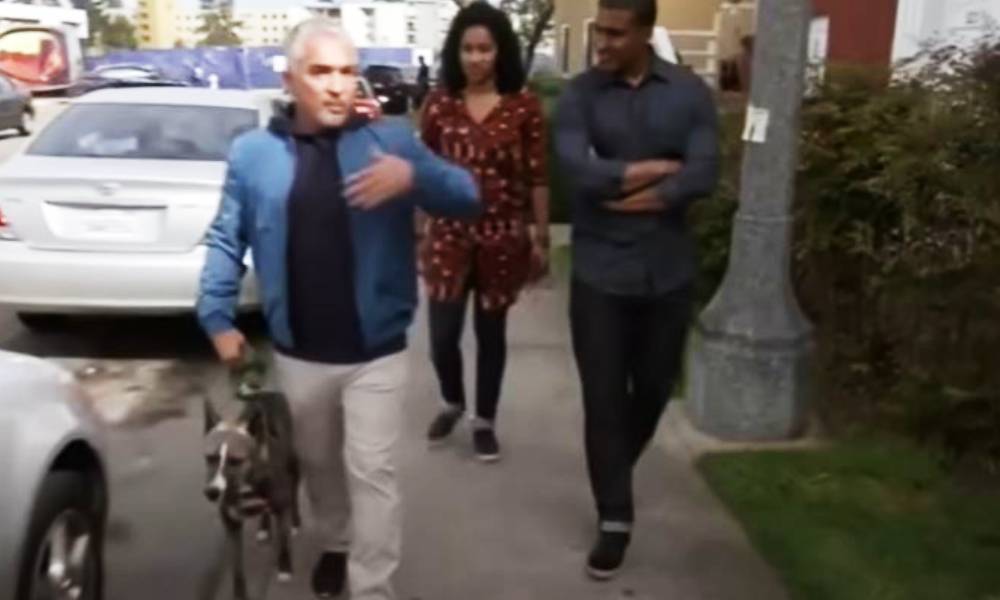
What Should I Do with My Dog Who’s Becoming Aggressive with Cats and Humans?
“Over the last few years, my dog, Hyde (mixed breed, 75 lbs, male, 10 years old) has started to have a nipping problem. He has never gotten along with other dogs, but the nipping has started moving to people as well. It never seems provoked, and I seldom actually see it happen,” Shawn related in PetHelpful’s Ask A Vet section, which has helped a lot of pet owners through the professional advice of Mark dos Anjos DVM.
Shawn continued with the following details about his dog, Hyde, “Recently though, I moved in with my girlfriend, and he has nipped her cats several times. I have owned a cat his whole life, and he has had several other cats come and go in that time span, never with an incident. This is quickly becoming an issue, and I am at a loss for how to handle it. I would much appreciate your opinion or any aid in the matter.”

Dr. Mark offered this explanation on dogs’ aggression toward cats. Actually, Hyde’s case may just be normal for him since some dogs may be fine with cats who have been their housemates. However, they may react aggressively toward new cats because they tend to run away, and the action triggers the dogs’ predatory instinct.
Another reason that may be causing Hyde’s aggression is illness due to aging. Dr. Mark said that approximately 15% of all dogs who have undergone evaluation for aggression problems were found to have health problems.
Training can help in resolving problems with an aggressive but otherwise healthy dog. Contrary to the saying that you can’t teach an old dog new tricks, a dog can be properly trained regardless of its age:

- Obedience Training. All dogs must be taught the basic skills, such as sit, stay, and down, along with vital commands: leave it and drop it. Training sessions should also be short and frequent to be more effective than doing it once a day or a few times a week.
- Relaxation. This training helps a dog to be less reactive and calmer. But you must be aware of the things, situations, etc. that trigger an aggressive reaction from your dog so you can begin counterconditioning.
- Habituation. With this training, your dog gets taught to become familiar with the cause of its aggression through repeated exposure. You can seek the help of an expert obedience trainer or do it yourself if you know what’s triggering your dog’s aggressive reaction, such as other dogs.
- Improved communication. Frequent training will also help with improving communication and relationship with your dog. Your dog will tend to rely more on you for commands, signals, and treats. It will also help you recognize signs before any aggressive reaction from your dog, knowledge that you can use in preventing your dog’s negative emotions from escalating.

However, if your dog doesn’t respond to personal training and you can sense he’s becoming dangerous, it’s best to consult an animal behaviorist to help resolve his aggression issues.